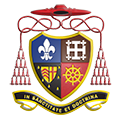The Social Sciences have a critical contribution to make, in helping us to understand, imagine and craft a more sustainable future for all.
United Nations
The Social Science team is committed to inspiring students who will go on and make a positive and long lasting impact on both our local community and the wider world. By fostering inquisitive and intelligent students, we hope that every student will be able to make educated, conscientious and thoughtful choices throughout their life.
Whether looking at the structure of society, biological responses to human behaviour or the impact of nature or nurture on us. We are driven to ensure every student has the capacity to thrive and learn in a safe, stimulating and thought provoking environment.
Sociology
Studying sociology offers insights into social and cultural issues. Over a fascinating two year period you’ll cover a spectrum of subjects which, between them, will help you make sense of the society we live in and understand the culture and identity issues which affect us all.
It helps you develop a multi-perspective and critical approach to understanding issues around culture, identity, religion, crime, childhood and social power. More than once during the course you’re bound to ask yourself the question, “why have we developed like this. Poverty, ignorance, crime, injustice … shouldn’t we have left them in the Stone Age?”
Meet the Team:
Miss Ahsan – Curriculum Leader for Social Sciences
Miss Mehegan – Teacher of Social Sciences
Miss J Long – Teacher of Social Sciences
KS4
GCSE Sociology (Eduqas)
You will learn how to apply the various sociological approaches to these issues, as well as how to assess their relevance in contemporary society.
You will cover topics alongside Studying Society, Crime and Deviance, Family, Education and Social Inequality. Topics empower students to build on their current affair and political conscience. This course will provide you with discursive and debating skills which will help develop your verbal skills, allowing you to question the reasons for why certain things do or do not happen in society. This course will also provide you with structured analytical and evaluative writing skill, through the development of your written examination technique. You will become more critical of all the things you read and see around you.
Eduqas GCSE Sociology Specification
Curriculum Map:
Autumn Term |
Spring Term |
Summer Term |
||||
1:1 |
1:2 |
2:1 |
2:2 |
3:1 |
3:2 |
|
Year 10 |
Key Processes and Cultural Transmission, Introduction to family |
Family |
Education |
Education |
Research Methods |
Social Stratification & Revision |
Assessment |
Knowledge recall assessment |
Component 1 – short and extended questions |
Component 1 – short and extended questions |
Component 1 – short and extended questions |
Component 1 – short and extended questions |
Component 2 – short and extended questions – FULL COMPONENT 1 PPE |
Year 11 |
Social Stratification |
Crime and Deviance |
Crime and Deviance |
Research Methods |
Revision |
Examination Period |
Assessment |
Component 2 – short and extended questions |
FULL COMPONENT 1 an Social Stratication PPE |
Component 2 – short and extended questions |
Component 2 – short and extended questions |
Component 1 and 2 FULL PAPER |
|
KS5
A Level Sociology (AQA)
There is no written coursework for AQA Sociology, students are assessed solely on their examination. In the first year you’ll have two main learning groupings. The first of those is Unit 1 – ‘Families & Households’ which looks at the relationship of the family to the social structure and how family life is changing and is continuing to change. The second topic is Unit 2 ‘Education’ and ‘Sociological methods’ which looks at the role and purpose of education, differential educational achievement amongst groups depending on class, ethnicity and gender, processes within schools, educational policies and the application of sociological research methods to the study of education.
In the second year, it’s a similar format. The first learning unit is Unit 3 ‘Beliefs in society’ which looks at the relationship between religious beliefs and social change/ stability, as well as exploring the significance of religion and religiosity in the contemporary world. The second unit includes ‘Crime & Deviance’ and ‘Theory & Methods’ looking at different theories of crime, deviance, social order and social control and how they are used to look at the social distribution of crime, globalisation and crime, prevention and punishment alongside a detailed understanding of the theoretical and methodological implications in the sociological study of suicide. Over the two years you’ll have developed a very strong and balanced knowledge-base on the subject of Sociology.
AQA A Level Sociology Specification
Curriculum Map:
Autumn Term |
Spring Term |
Summer Term |
||||
1:1 |
1:2 |
2:1 |
2:2 |
3:1 |
3:2 |
|
Year 12 |
Family |
Family |
Education |
Education |
Methods in context |
Revision |
Assessment |
Paper 2 – 10 and 20 mark question |
Paper 2 – 10 and 20 mark question |
Paper 1 – 10 and 30 mark question |
Paper 1 – 10 and 30 mark question |
Paper 1 – 20 Mark |
Full Paper 1 and Family section Paper 2, PPE |
Year 13 |
Crime and Deviance |
Crime and Deviance |
Beliefs |
Beliefs |
Revision |
Examination Period |
Assessment |
Paper 3, 30 Mark |
Paper 3, Full crime section |
Paper 2 – 10 and 20 mark question |
Paper 2 – 10 and 20 mark question |
Full Paper 3 |
|

